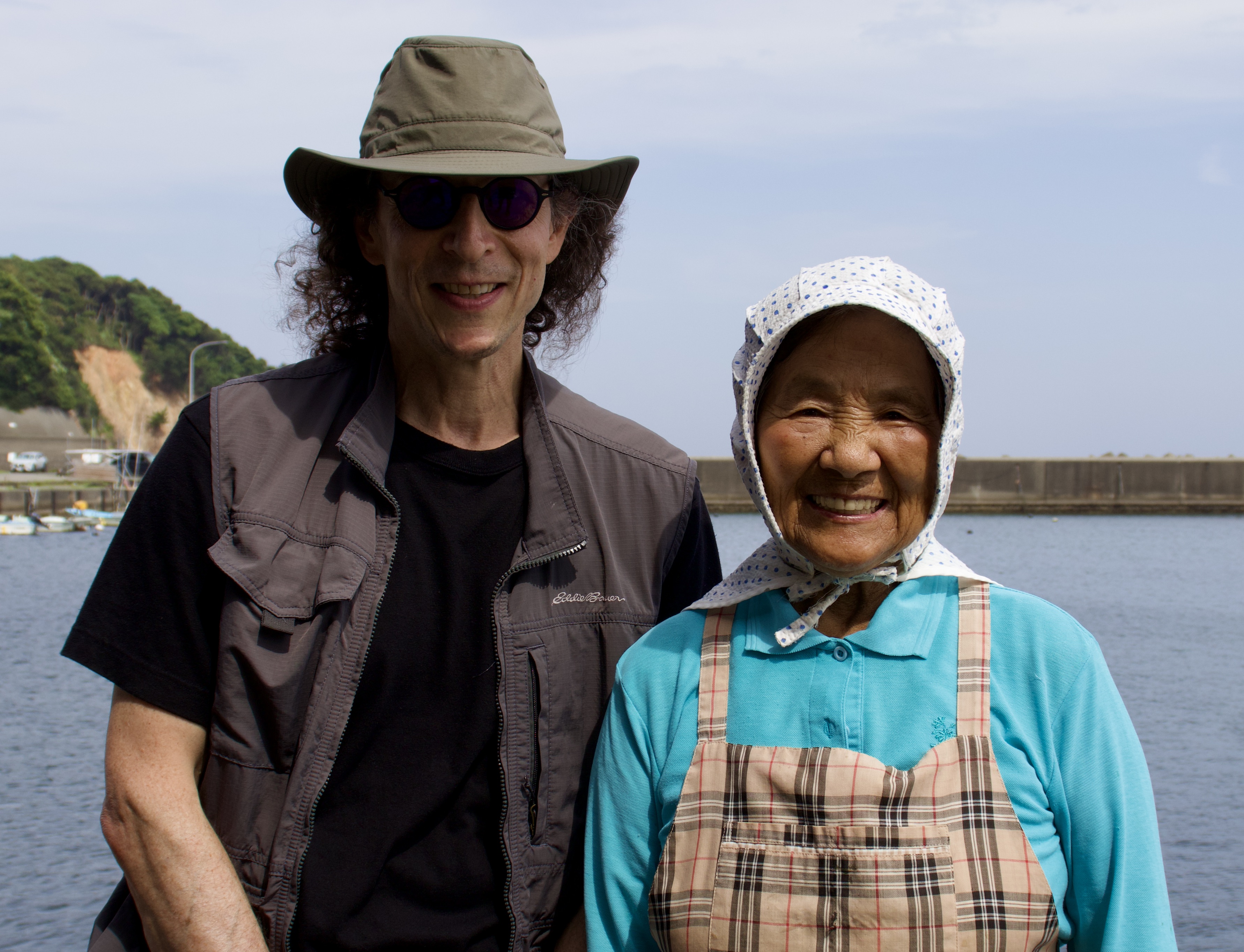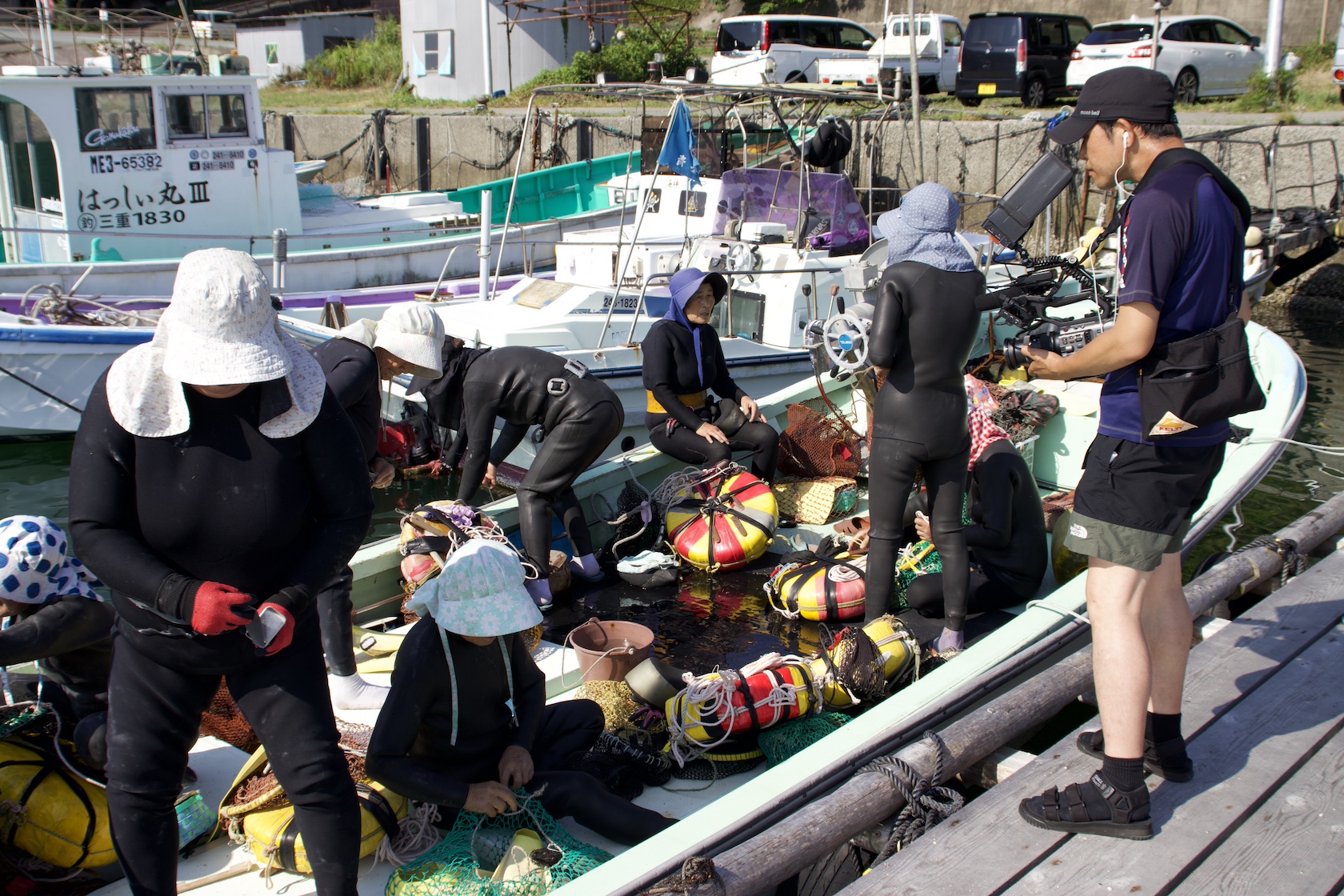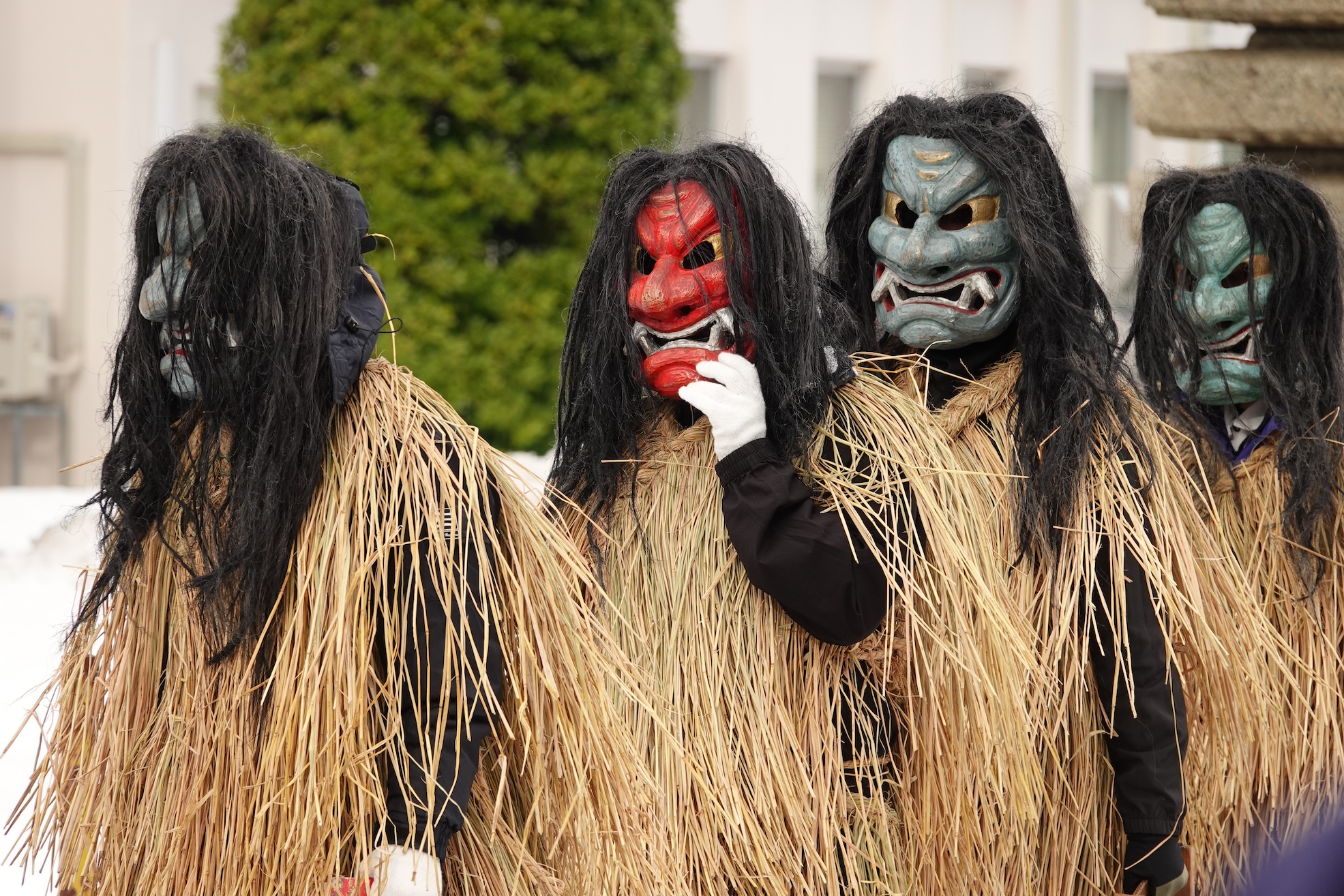Dr. Michael Dylan Foster unofficially started his career in Japanese folklore studies while hitchhiking around Scotland. He loved hearing the stories of people he met on the road and in the towns he stopped in during his travels. It wasn’t until later that he looked back and realized he’d been a folklorist his whole life without even realizing it.

His original dream was to become a novelist, traveling and working around the world. Equipped with a B.A. in English from Wesleyan University, he started traveling–first in Europe, then Asia.
A job teaching English in Japan inspired him to get his M.A. in Asian Studies at UC Berkeley, where he discovered that what he was interested in fit into the category of folklore. “I didn’t realize that could be something you studied,” he says. “You find out all of a sudden that the thing you’ve always been doing could be something you could make a living from, which never occurred to me when I was hitchhiking.”
Dr. Foster went on to earn his Ph.D. in Japanese from Stanford University and is now one of the world’s foremost experts on yōkai, legendary creatures of Japanese folklore. Not only has he written two books on the subject, with an expanded second edition of one of them to be released in October, but he has also been the host of the NHK World TV series “Yōkai: Exploring Hidden Japanese Folklore” since 2022.
Filming a Deep Dive on Free Divers
So far they have filmed 6 episodes of the show, which is available for streaming on the NHK World website. Links to some of the episodes can be found on Dr. Foster’s faculty profile on the East Asian Languages and Cultures website.

While he’s enjoyed filming all the episodes and getting to experience the cultures of the small communities they feature, the one he has found most interesting so far was the episode on the Tomokazuki, a legendary yōkai who takes the form of an ama, or female shellfish diver. The legend says that if another ama accepts the abalone that the Tomokazuki offers to them, they will be dragged into the depths of the sea by the creature, never to be seen again.
But rather than the legend itself being Dr. Foster’s favorite part of the episode, it was the actual divers, the ama, who left the greatest impression.
“There are very few active ama left in Japan. We met a lot of older women–I think the oldest was 84 years old, and she’s still diving. And this is free diving, so they have wetsuits, but no scuba equipment. They’re holding their breath and diving down for shellfish.” He loved hearing their stories and learning how things have changed for them since they began diving as young women.
New Year, Same Research
He also studies Japanese festivals and rituals, specifically the Namahage and Toshidon festivals, in which young men dress up as demon deities and go from house to house to scare local children. Both festivals take place on New Year’s Eve, in Oga City (Akita Prefecture) and Shimo-Koshikijima (Kagoshima Prefecture) respectively. Dr. Foster has been alternating between visiting each region during these festivals for over 20 years.

“I’m always working on New Year’s!” he says. “My winter breaks, if I can get to Japan, are pretty intense, especially the few days before and after New Year’s Eve. And then I have to fly back here to start teaching.”
But, he adds, it doesn’t even feel like work anymore. Over time, he has developed close relationships with people in both places. He even lived in Shimo-Koshikijima for six months, and says that visiting now feels almost like seeing family. “Our relationship isn’t just about work–we’re friends for life.”
Forming relationships is one of Dr. Foster’s favorite parts of his work. “The insight I get from having the privilege to go to other people’s communities and getting to know people is one of the most exciting things about my research,” he reflects. “It takes a lot of time and effort to become part of a community. It’s become kind of a second or third home to me, in a way. That doesn’t happen if you just visit a place quickly, or only one time.”
Closer to Home
When he’s not traveling and writing, Dr. Foster is bringing his wisdom to the classroom through courses such as Japanese Popular Culture (JPN 109), Japanese Folklore (JPN 155), Tourism and Heritage in Japan (JPN 154) and most recently, Japanese Food Culture (JPN 160).
For students interested in Japanese culture, literature, film and more, Dr. Foster encourages enrolling in a class–even the upper-division electives don’t require students to have any background in the language or culture. “Dive right in!” he says. “A lot of times, people will take one of our classes and realize they’re really interested. I encourage students to do that no matter what their major is.”
Don’t want to wait until next quarter to get involved? Check out some of our Japanese clubs, including Japanese Language and Culture Connection, Japanese American Student Society and Davis Anime Club.
If you want to learn more about Dr. Foster, his research, and his classes, you can view his faculty profile or email him at mdfoster@ucdavis.edu. You can also order his new book, The Book of Yokai, Expanded Second Edition: Mysterious Creatures of Japanese Folklore, which will be released October 22, 2024.
Photos courtesy of Dr. Foster.
